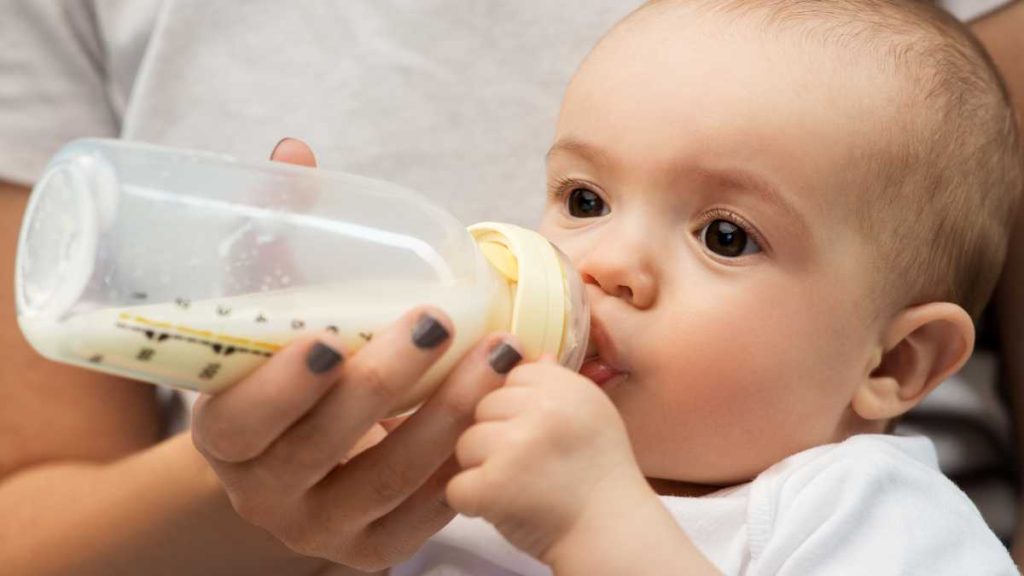As new parents, taking care of a newborn can feel like a daunting task. There are so many things to learn and so many decisions to make. However, with a little bit of preparation and knowledge, you can feel confident in your ability to care for your new bundle of joy. In this article, we will share some newborn care tips to help you navigate this exciting but challenging time.
One of the most important things to keep in mind when caring for a newborn is their fragility. Newborns are delicate and require gentle handling. We will provide tips on how to properly support your baby’s head and neck, as well as how to wash your hands and ensure that anyone who handles your baby has clean hands. Additionally, we will discuss the importance of sponge bathing your baby daily and how often to give them a full sink- or tub-bath.

Feeding your newborn is another crucial aspect of their care. Breast milk is the ideal food for babies, but if breastfeeding is not possible, we will discuss the use of infant formula. We will also provide tips on how often to feed your baby and how to recognize hunger cues. With these newborn care tips, we hope to help new parents feel more confident in their ability to care for their little one.
Understanding Newborn Basics
As new parents, we may feel overwhelmed and unsure about how to care for our newborn. Understanding some basic behaviors can help us feel more confident in our parenting abilities. In this section, we will cover how to recognize newborn behavior, understand newborn sleep patterns, and decode newborn crying.
Recognizing Newborn Behavior

Newborns communicate through their behavior. By observing our baby’s behavior, we can learn what they need and how to respond to them. Some behaviors to look out for include:
- Rooting reflex: When a newborn turns their head and opens their mouth in search of a nipple.
- Grasping reflex: When a newborn tightly grips onto an object placed in their hand.
- Crying: Newborns cry to communicate their needs. We can try to soothe our baby by holding them, rocking them, or feeding them.
Understanding Newborn’s Sleep Patterns

Newborns sleep a lot, but not for very long periods at a time. They may sleep for 16-17 hours a day, but only for a few hours at a time. It’s important to know that newborns have irregular sleep patterns and may wake up frequently during the night. To help our baby sleep better, we can try the following:
- Create a calming sleep environment: Keep the room quiet, dark, and at a comfortable temperature.
- Establish a bedtime routine: A consistent bedtime routine can help signal to our baby that it’s time to sleep.
- Swaddle our baby: Swaddling can help our baby feel secure and calm.
Decoding Newborn Crying

Newborns cry for many reasons, including hunger, discomfort, or a need for comfort. It can be challenging to figure out what our baby needs when they cry, but we can try to decode their crying by paying attention to the following:
- The pitch of the cry: A high-pitched cry may indicate pain, while a low-pitched cry may indicate hunger.
- The duration of the cry: A short cry may indicate discomfort, while a longer cry may indicate a more significant need.
- The pattern of the cry: A rhythmic cry may indicate that our baby is tired, while a sudden, sharp cry may indicate discomfort.
By understanding our newborn’s behavior, sleep patterns, and crying, we can better meet their needs and help them feel secure and loved during their fourth trimester.
Feeding Your Newborn

Feeding your newborn can be a challenging task, especially if you’re a new parent. But don’t worry, we’re here to help you navigate through the basics of feeding your little one. In this section, we’ll cover breastfeeding basics, formula feeding fundamentals, and burping techniques.
Breastfeeding Basics

Breastfeeding is the most natural and beneficial way to feed your newborn. It provides all the necessary nutrients for your baby’s growth and development. If you’re planning to nurse your baby, here are a few tips to get started:
- Nurse your baby as soon as possible after birth, ideally within the first hour.
- Find a comfortable position for both you and your baby. You can try the cradle hold, cross-cradle hold, or football hold.
- Ensure that your baby is latched on correctly. The baby’s mouth should cover the entire areola, not just the nipple.
- Nurse your baby on demand, whenever they show signs of hunger.
- Consider consulting a lactation consultant if you’re having trouble with breastfeeding.
Formula Feeding Fundamentals

Formula feeding is an alternative to breastfeeding and can provide your baby with all the necessary nutrients for growth and development. Here are a few tips to get started with formula feeding:
- Choose a formula that is appropriate for your baby’s age and needs.
- Sterilize all feeding equipment before use.
- Measure the formula accurately and mix it with the appropriate amount of water.
- Feed your baby on demand, following their hunger cues.
- Consider consulting your pediatrician if you have any concerns about formula feeding.
Burping Techniques

Burping is an essential part of feeding your newborn, as it helps to release any air that may have been swallowed during feeding. Here are a few techniques to try:
- Hold your baby upright against your chest and pat their back gently.
- Sit your baby on your lap and support their chest with one hand while patting their back with the other.
- Lay your baby face down across your lap and pat their back gently.
In conclusion, feeding your newborn can be a challenging but rewarding experience. Whether you choose to breastfeed or formula feed, it’s important to ensure that your baby is getting all the necessary nutrients for growth and development. Don’t hesitate to seek help from a healthcare professional or lactation consultant if you’re having trouble with feeding.
Newborn Sleep Tips
As new parents, we know how important it is to get enough sleep. But with a newborn in the house, it can be challenging to get the rest we need. Here are some tips to help your newborn sleep better:
Creating a Sleep Schedule

Newborns sleep a lot, but they don’t have a set schedule yet. To help your baby get into a routine, try to establish a consistent bedtime routine. This could include a bath, a story, and a lullaby. Be sure to put your baby to bed at the same time every night.
Understanding SIDS
Sudden Infant Death Syndrome (SIDS) is a scary topic, but it’s important to know the risk factors and how to minimize them. The American Academy of Pediatrics recommends that babies sleep on their backs to reduce the risk of SIDS. It’s also important to keep the crib free of blankets, toys, and other items that could pose a suffocation hazard.
Dealing with Sleep Deprivation
Sleep deprivation is a common experience for new parents. To cope with sleep deprivation, try to take naps when your baby is sleeping. You can also ask for help from family and friends or hire a sleep consultant.
Remember, it’s normal for newborns to wake up frequently during the night. But with a little patience and persistence, you can help your baby develop healthy sleep habits that will benefit both of you in the long run.
Newborn Health and Safety
As new parents, we want to ensure that our newborn is healthy and safe. There are a few things we need to keep in mind to make sure our little one is healthy and thriving.
Routine Check-ups

It is essential to schedule regular check-ups with a pediatrician to monitor our newborn’s health. During these visits, the doctor will check our baby’s weight, height, and head circumference. The pediatrician will also check for any signs of jaundice, a common condition in newborns that can cause yellowing of the skin and eyes. We must follow the doctor’s recommendations for vaccinations and other preventive measures to keep our baby healthy.
Common Health Concerns
Newborns are susceptible to various health concerns, such as diaper rash, colic, and reflux. We can take steps to prevent these issues by keeping our baby’s diaper area clean and dry, holding our baby upright during feedings, and burping our baby after every feeding. If our baby develops any health concerns, we should consult our pediatrician for advice.

Safety Precautions
We need to take extra precautions to keep our newborn safe. We should never shake our baby, as this can cause serious brain damage and even death. We should also keep all medicines out of reach and locked away, as even a small dose of medicine can be harmful to our baby. It’s important to keep our baby’s sleeping area safe by placing our baby on their back to sleep and avoiding soft bedding and toys in the crib.
In conclusion, by following these tips and consulting our pediatrician regularly, we can ensure our newborn’s health and safety.
Newborn Hygiene and Care
Caring for a newborn can be an exciting and rewarding experience, but it can also be overwhelming, especially if you are a first-time parent. One of the most important aspects of newborn care is maintaining proper hygiene. In this section, we will discuss some essential newborn hygiene tips that will help keep your baby clean and healthy.
Diapering Your Newborn

Newborns require frequent diaper changes, as they tend to soil their diapers often. Wet diapers should be changed as soon as possible to prevent diaper rash and other skin irritations. It is recommended to change your newborn’s diaper every two to three hours, or as soon as you notice it is wet or soiled.
When changing your baby’s diaper, make sure to clean the diaper area thoroughly with wipes or a damp cloth. For newborns, it is best to use warm water and a soft cloth to clean the diaper area. Be sure to clean the folds and creases of your baby’s skin, as urine and feces can accumulate in these areas and cause irritation.
Bathing Your Newborn

Newborns do not need to be bathed every day. In fact, bathing your baby too often can strip their skin of its natural oils and cause dryness and irritation. A sponge bath is usually enough to keep your newborn clean until their umbilical cord stump falls off.
When giving your baby a sponge bath, make sure to use warm water and a mild soap that is specifically formulated for babies. Avoid using harsh soaps or adult products, as they can be too harsh for your baby’s delicate skin. Also, be sure to support your baby’s head and neck during the bath, as they are not able to hold up their heads on their own yet.
Caring for the Umbilical Cord Stump
The umbilical cord stump is a small, fleshy piece of tissue that remains attached to your baby’s belly button for the first few weeks of life. It is important to keep the umbilical cord stump clean and dry to prevent infection.

To care for the umbilical cord stump, make sure to keep it clean and dry. Avoid submerging your baby in water until the stump falls off, as this can increase the risk of infection. Instead, give your baby a sponge bath, being careful not to get the stump wet. If the stump becomes dirty or sticky, you can clean it with a cotton swab dipped in warm water.
In conclusion, maintaining proper hygiene is essential for your newborn’s health and well-being. By following these simple tips, you can help keep your baby clean, comfortable, and healthy.
Soothing and Bonding with Your Newborn
Understanding Soothing Techniques
As new parents, we may find ourselves struggling to soothe our crying baby. One of the first things we should do is try to understand the reason behind our baby’s crying. Is our baby hungry, tired, or in need of a diaper change? Once we have addressed these basic needs, we can move on to soothing techniques.

Swaddling can be a great way to soothe our baby. By wrapping our baby snugly in a blanket, we can help them feel secure and calm. We can also try swinging or rocking our baby gently. This can mimic the motion they felt in the womb and help them feel more relaxed.
Another technique we can try is using sound. White noise or soft music can help mask other noises and soothe our baby. We can also try using a pacifier. Sucking can be soothing for our baby and help them feel more relaxed.
Creating a Bonding Experience
Bonding with our baby is important for their emotional and social development. One way to create a bonding experience is through skin-to-skin contact. Holding our baby close to our chest can help them feel secure and loved. It can also help regulate their body temperature and breathing.

Talking to our baby and making eye contact can also help create a bond. Even though they may not understand our words, they can still benefit from hearing our voice and seeing our facial expressions. We can also try playing with our baby and making them laugh. This can help create positive associations and strengthen our bond.
It’s important to remember that every baby is different, and what works for one may not work for another. If our baby has colic or is particularly fussy, we may need to try different techniques or seek advice from our pediatrician. The most important thing is to be patient and consistent in our efforts to soothe and bond with our baby.
Caring for Yourself as a New Parent
As new parents, we often focus all our attention on caring for our newborns and forget to take care of ourselves. However, it’s essential to prioritize our physical and mental health to ensure that we can provide the best care for our little ones. Here are some tips on how to take care of yourself as a new parent.

Taking Care of Your Physical Health
As new moms, our bodies have just gone through a significant transformation. It’s crucial to give ourselves time to rest and recover. We should aim to get as much sleep as possible, even if it means taking naps during the day. We can also consider hiring a postpartum doula to help us with household chores and taking care of the baby, so we can get some much-needed rest.
Breastfeeding can also take a toll on our bodies, and we may experience engorged breasts, sore nipples, and other discomforts. We should talk to our healthcare provider or a lactation consultant for tips on how to manage these issues and make breastfeeding more comfortable.
Taking Care of Your Mental Health
Being a new parent can be overwhelming, and it’s normal to experience feelings of anxiety, stress, and even depression. It’s essential to prioritize our mental health and seek support when needed. We can talk to our healthcare provider about our feelings and consider joining a support group for new parents. We can also practice self-care by taking a relaxing bath, reading a book, or going for a walk.

Support
As new parents, we need all the support we can get. We should reach out to our partner, family, and friends for help with household chores and taking care of the baby. We can also consider hiring a babysitter or a nanny to get some time off and take care of our own needs.
In conclusion, taking care of ourselves as new parents is crucial for our physical and mental health. We should prioritize rest, seek support, and practice self-care to ensure that we can provide the best care for our little ones.

